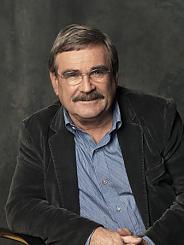Remi Poppe: The dark side of capitalism
Remi Poppe: The dark side of capitalism
AkzoNobel is threatened with being taken over by American predatory capitalists. Recently Unilever also fell into American hands via a hostile takeover. In principle there’s nothing exceptional about any of this. What’s unusual is that Jeroen van der Veer, ex-head of Shell and currently chairman of the board of directors of both Philips and ING, is worried about it. “Hostile takeovers are the dark side of capitalism,” I heard him say on TV.
 Momentarily my assumption was that he must be referring to the acquisition of Niger’s oil reserves and Shell’s criminal pollution of the Niger Delta. It turned out, however, that this wasn’t the case. Jeroen doesn’t want “globalisation to mean that we in the Netherlands are going to sell off our big firms.” And he’s right. Yet most shareholders of these companies don’t actually live in our country. It’s Unilever’s British shareholders and AkzoNobel’s American shareholders who will benefit from these sales.
Momentarily my assumption was that he must be referring to the acquisition of Niger’s oil reserves and Shell’s criminal pollution of the Niger Delta. It turned out, however, that this wasn’t the case. Jeroen doesn’t want “globalisation to mean that we in the Netherlands are going to sell off our big firms.” And he’s right. Yet most shareholders of these companies don’t actually live in our country. It’s Unilever’s British shareholders and AkzoNobel’s American shareholders who will benefit from these sales.
These shareholders are going for more profit on their shares, pitilessly if needs be. It is these international shareholders, whose greed matches that of the Very Hungry Caterpillar in the famous children’s story, who couldn’t care less about the workers affected, nor, for the most part, for the environment in the countries where ‘their’ factories are found. And the multinationals’ bosses must, if they want to keep their jobs, dance to this tune of greed. So Unilever sells off its margarine brands to butter the shareholders up with the proceeds, while similarly AkzoNobel liquidises part of its business in order to be able to return some profits to their own shareholders.
It’s the directors who make the most beautiful- sounding statements when it comes to the environment and the climate. They publish these in magnificent, glossy annual reports and advertising leaflets, but the stated fine intentions are quickly forgotten if they are never able to capture enough ‘markets’ to feed the Very Hungry Caterpillars or make their production as efficient as possible. In practice this means going in search of the best tax havens, the lowest wages and the least costly environmental demands.
As long as these insatiable caterpillars continue calling the shots and calling for more, nothing much will change. Jeroen is complaining about the darkness, but I don’t see him turning on the light. Yet something must change in the economic relations of power. And that, only the workers-of-all-countries can achieve.
